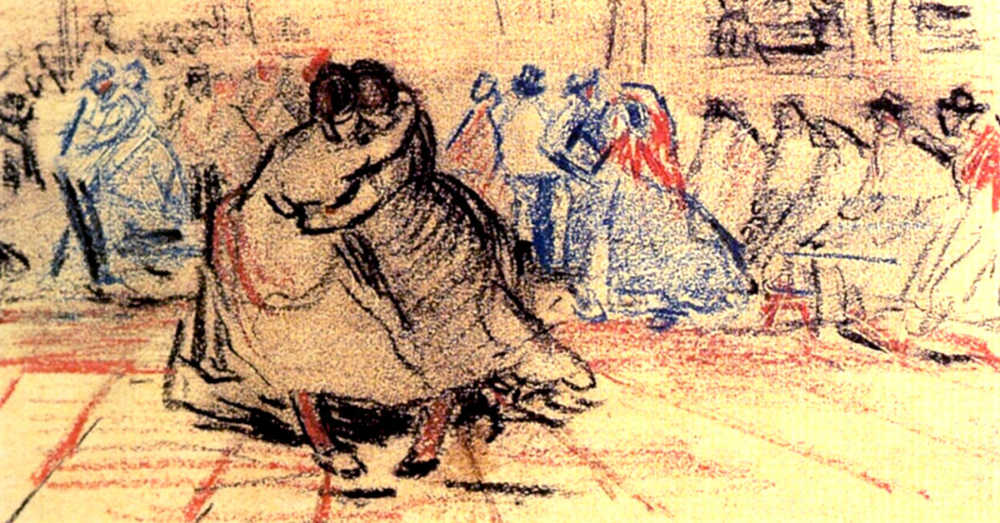We run our website the way we wished the whole internet worked: we provide high quality original content with no ads. We are funded solely by your direct support. Please consider supporting this project.

What Does It Mean to Be Married to Christ?
The New Testament calls Christ the “bridegroom” and the church his “bride.” To understand what this means can change your life. We need to read this through the lens of first century Jewish marriage. In what follows we’ll highlight six aspects of first century Jewish marriages to see how each sheds light on the New Testament’s understanding of our relationship with God.
The Proposal. In ancient Jewish culture a man initiated the process of getting married by pledging his life to his prospective bride on the condition that she will accept his offer and reciprocate his love and pledge. This is what God does toward us in Christ. Jesus’ incarnation, ministry and death on our behalf is God’s declaration of love toward us. Yet, God doesn’t pledge his life toward us on the condition that we reciprocate. Rather, “while we were yet sinners Christ died for us’ (Rom. 5:8). God makes the ultimate sacrifice up front, in hopes that this will win the heart of his potential bride and she will reciprocate. Christ’s sacrifice is thus God’s invitation to join him at “the marriage supper of the lamb.”
Saying Yes. A marriage is entered into only when the prospective bride accepts the invitation and pledges her life to the groom. It’s true that in many ancient cultures, including ancient Jewish culture, women could be forced to marry men they didn’t want to marry. But coerced marriages are an unfortunate consequence of the world’s oppression and do not reflect God’s ideal. Because love must be freely chosen, God wants a bride who voluntarily pledges her life to him in response to loving sacrifice. We begin to belong to our heavenly bridegroom the moment we genuinely say “yes” to his proposal by pledging to reciprocate his love and surrender our life over to him.
The Betrothal Ceremony. Almost all covenants in the Bible begin with a public ceremony. This was certainly true of first century Jewish marriages. While a full wedding ceremony wouldn’t take place for some time, it was expected that the couple would publicly declare their covenant pledges in a betrothal ceremony soon after the woman accepted the proposal.
This is the role baptism plays in the believer’s life. In baptism an individual publicly declares their faith in Christ and pledges to live as a faithful covenant partner within the community of God’s collective bride, the church.
The Betrothal Period. Ancient Jewish couples were betrothed to one another for one or more years before they had a wedding ceremony and consummated their marriage. Yet, this betrothal period was not anything like modern “engagements” that can be easily called of. The betrothal period was a time when the bride and groom were supposed to prepare themselves for the life they were going to soon share together. The husband often went away and prepared a home for the future family while the woman would engage in practices that prepared her for her future life as a wife and mother.
This betrothal period is presupposed in many of Jesus’ teachings, such as his parable about the virgins who hadn’t prepared themselves for the returning bridegroom. Jesus was also alluding to this betrothal period when he told his disciple’s that he was “going away to prepare a place for them” so that they could always be where he was (Jn. 14). Once he’d made his declaration of love and pledge of life by dying on the cross, he would have to go away and prepare a place for he and his bride to live together. This betrothal period is also presupposed in the New Testament’s teaching about the need for the bride to “make herself ready” (Rev. 19).
The Betrothal Gift. It was customary for a first century Jewish groom to express the sincerity of his pledge to his newly betrothed bride by giving her a precious gift. It was the bride’s assurance while her groom was away that he would indeed return for her.
Jesus gives us the precious betrothal gift of the Holy Spirit (John 16). Jesus knows we cannot prepare ourselves for his return on our own, so he places his own Spirit inside of us to empower us and teach us how to live in his ways. He also doesn’t want us to feel abandoned or distressed in his absence, so he gives us “the Comforter” (John 16:7) who is the assurance of our future inheritance in Christ (Eph 1:14).
The Consummation of the Marriage. Finally, when the home was prepared and the bride had made herself ready, the groom would return for his bride. The whole community would engage in a magnificent wedding celebration and the couple would consummate their marriage and become “one flesh.” Given the marriage framework of the New Testament’s understanding of our relationship with God, we’re not surprised to discover that this is precisely how heaven is depicted in the book of Revelation.
After witnessing a symbolic portrayal of Gods’ victory over the Powers, John heard a multitude proclaiming:
Hallelujah! For our Lord God Almighty reigns.
Let us rejoice and be glad
and give him glory!
For the wedding of the Lamb has come,
and his bride has made herself ready (Rev. 19:6-7).
This was followed by an angel telling John, “Write: ‘Blessed are those who are invited to the wedding supper of the Lamb!’” (Rev. 19: 9).
_____
art: “Couple Dancing”
by: Vincent van Gogh
date: 1885
Category: Q&A
Tags: Bride of Christ, Covenant, Jesus, Married to Christ
Topics: Death and Salvation
Related Reading

God is Like a Trojan Horse
Yesterday, I introduced a basic understanding of the Christus Victor view of Christ’s work on the cross. [Click here to read it.] Today, I want to expand on this briefly. Because God is a God of love who gives genuine “say-so” to both angels and humans, God rarely accomplishes his providential plans through coercion. God…

That Weird Episode with the Pigs
In my opinion, the single strangest episode recounted in the Gospels is the account of Jesus’ encounter with a demonized man that ended with two thousand pigs drowning themselves in the Sea of Galilee (Mk 5:1-10//Mt 8:28-34; Lk 8:26-39). Some find it morally objectionable that this mass suicide was the result of Jesus allowing the…

Pretty Little Vampires: Osheta Moore
We’re thrilled today to introduce you to Osheta Moore, blogger extraordinaire over at Shalom in the City. Osheta is in the middle of a wonderful series of blog posts on finding her “tribe”. We love this woman. Listen to a section from her “about me”: I’m an African-American, suburbanite Texan from the Bible Belt living in…

God’s Favor, Not Vengeance
Jesus began his ministry with a brief sermon in his hometown synagogue. Quoting Isaiah 61, Jesus said, The Spirit of the Lord is on me, because he has anointed me to proclaim good news to the poor. He has sent me to proclaim freedom for the prisoners and recovery of sight for the blind, to…

Lighten Up: The Jesus Eraser
“For he himself is our peace, who has made the two groups one and has destroyed the barrier, the dividing wall of hostility…” Ephesians 2:14 Image by David Hayward @ www.nakedpastor.com.

Not the God You Were Expecting
Thomas Hawk via Compfight Micah J. Murray posted a reflection today titled The God Who Bleeds. In contrast to Mark Driscoll’s “Pride Fighter,” this God allowed himself to get beat up and killed while all his closest friends ran and hid and denied they even knew him. What kind of a God does this? The kind…
